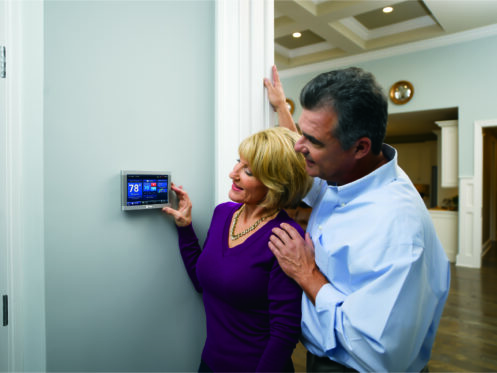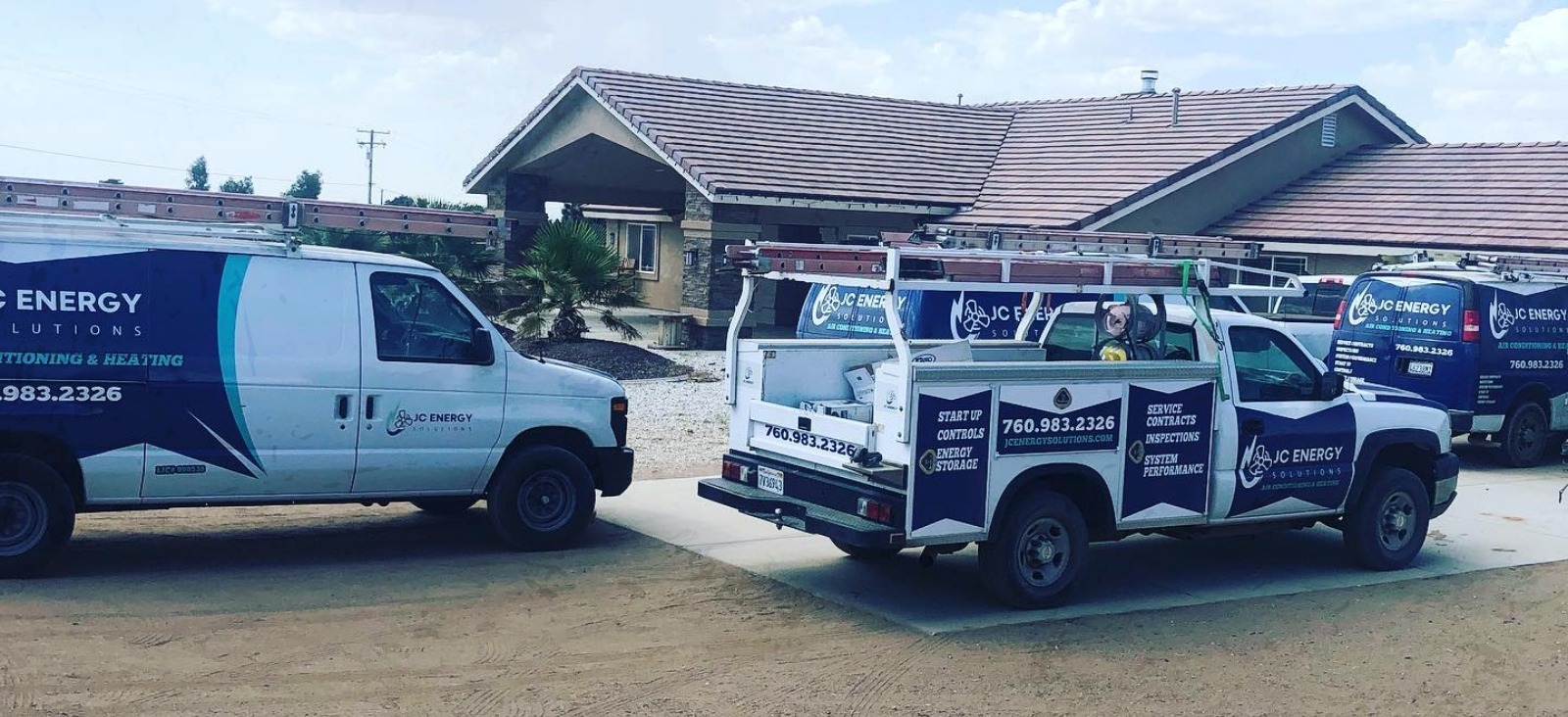Smart thermostats have become popular in recent years. Most property owners are using them as a replacement for traditional programmable models because they offer extra flexibility. They have a range of benefits but also come with some drawbacks. Here are the pros and cons of these devices when they are used to control HVAC systems.
Pros of Smart Thermostats
Smart thermostats have several benefits.
1. Energy Efficiency
Smart thermostats can learn your heating and cooling preferences. They will automatically adjust temperatures to energy-saving settings when you are away or asleep. They can also be controlled remotely, so in case you unintentionally leave your system running, you can turn it off or put it into power-saving mode regardless of your location.
Smart thermostats also allow you to track your home energy use as they provide information on consumption patterns. They provide details including the duration your HVAC system was in use and the climate information that may have influenced energy use. Based on this, the device can recommend tips you can use to improve energy efficiency. These are sent through smartphones or online portals.
Smart thermostats can reduce your monthly energy bills by optimizing energy usage. On average, they can help you save about $130 to $145 a year.
2. Convenience
Most smart thermostats are compatible with smart home systems. You can link your device with voice-activated assistants, including Amazon Alexa and Google Assistant. This gives you voice control over your HVAC systems and you can regulate the temperature from the comfort of your bed or couch. Besides, you can connect them to motion sensors so they turn off the system when the rooms are unoccupied.
Geofencing capabilities can automatically adjust settings when you leave or return home. Smart thermostats incorporate this technology, which uses the GPS capabilities on your smartphone to tell how far you are from your property. When you are near the house, the thermostat signals the HVAC system to warm or cool the house so you are comfortable upon return. If there are sudden weather changes, you can adjust the thermostat settings so it preconditions the house accordingly before you arrive.
3. Enhanced Comfort
With smart thermostats, you can create multiple settings for different rooms. This is done by zoning, where you divide your home into several parts (zones) and set the desired temperature for each. For instance, the kitchen and gym require more cooling than other parts of the house. You can set the temperature at lower degrees so you can be comfortable when cooking or working out. When you leave these rooms, you’ll find the others at the right temperature.
Besides, you can enjoy consistent indoor temperatures tailored to your preferences. Smart thermostats can learn the frequency and nature of your interaction with the device to understand your whereabouts better. They can then automatically set the temperature as you would. The more data it collects, the better the smart thermostat gets at predicting your needs and adjusting the HVAC system to meet them.
Cons of Smart Thermostats
The following are the disadvantages of investing in a smart thermostat.
1. High Upfront Cost
Smart thermostats have a higher purchase price compared to traditional thermostats and can be three times more expensive. This initial investment may be a financial barrier for some homeowners, especially if they need multiple thermostats.
2. Dependence on Wi-Fi and Power
Smart thermostats rely on a stable Wi-Fi connection for remote access and control. If your home network experiences issues or outages, it can disrupt the thermostat’s functionality. Similarly, power outages can affect the thermostat’s operation. This restricts their use to homes connected to the internet and electrical supply.
3. Compatibility and Control Issues
Not all smart thermostats are compatible with every HVAC system. Older systems may require additional hardware or professional installation for proper integration, and these services may be expensive. Some property owners may also struggle to program the device as it requires technical knowledge.
4. Privacy and Security
Smart thermostats collect data on your energy usage patterns and personal preferences. While this data is used to optimize performance, some users may be concerned about privacy and the security of their information. There is also a risk of hacking or unauthorized access to the thermostat.
Our HVAC experts at JC Energy Solutions can help you choose the right smart thermostat model for your home and install it so there is efficient communication with your heating and cooling systems. Our team of qualified and licensed technicians is dedicated to providing HVAC services, including system installation, repair and maintenance throughout Oak Hills, CA. Contact us today at JC Energy Solutions for reliable residential or commercial HVAC services.







